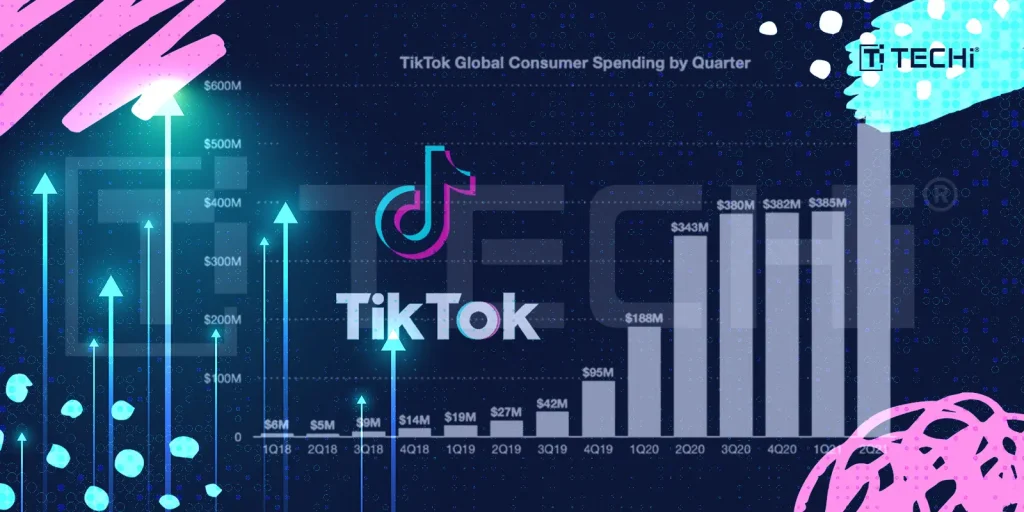TikTok, the virtual stage where blooming viral trends and some dance moves dare to question cultural viability, has now dipped its toe into history. Along with its Chinese counterpart, Douyin, it made headlines by becoming the first non-gaming app to generate a staggering $6 billion in revenue from in-app purchases in the year 2024. As per the report of Sensor Tower on App Intelligence, it is a new record for TikTok to have grossed $1.9 billion in IAP revenue in the fourth quarter of last year. If any social media has done a definite financial mic drop, that would be it.
TikTok’s Revenue and Other Apps:
From all the non-gaming apps, only YouTube and Google One can feasibly provoke TikTok’s Q4 revenue for a full calendar year. In any case, TikTok’s annual IAP revenue surpassed all other competitors and, in fact, is more than double the revenue of any other app or game in 2024. MONOPOLY GO!, TikTok’s closest competitor, could only bag $2.6 billion in the past year in IAP revenue, thus coming in a very distant second.
TikTok has had a successful economic run, starting with a sudden year on year rise from $4.4 billion in 2023 to a new high of $6 billion in 2024. The app did seal the second most downloaded app position in Q4 2024, with Instagram taking the top slot. WhatsApp, Facebook, and Temu for e-commerce made up the remainder of the top five.
TikTok-Douyin Comparison:
Money makes the direct comparison between TikTok and other apps inherently flawed in itself because of revenue accounts being pushed for Douyin, the Chinese counterpart. ByteDance owns the two platforms and follow relatively similar short-form video models. However, they serve entirely different markets, Douyin implements a tighter integration with e-commerce, heavy regulation with respect to Chinese authorities, while TikTok contains various forms of content in an audience oriented manner across the globe.
Challenges for TikTok’s Market:
In the U.S. regulatory scrutiny, there have been some attempts to take TikTok down from app stores for national security purposes. However, there was a 75-day delay following an executive order from Donald Trump, during which the ban could potentially be extended. TikTok has left an economically permanent mark through thick and thin, especially with regard to the creator economy. Users can buy virtual gifts for their favorite creators, who, in turn, may convert them into real currency. TikTok will keep 50% of the cash from these transactions, where the transactions go back to its revenue in the momentum.
TikTok has secured its way as a giant in digital entertainment and social media. With in-app revenue amounting to $6 billion and a catch on global culture that no other platform can rival, TikTok creates a financial dominance that is impossible to hide. Its ability to monetize virtual gifts, engage users, and power the economy of creators has cemented its place as the unstoppable force that it is, notwithstanding the restrictions and competition in social media. Whether by means of viral dance challenges or shopping via the app, TikTok is not just a social media app, it is an economic powerhouse that is redefining digital entertainment.
Read More: What’s Next for TikTok in the U.S.? Billion-Dollar Bids and High-Stakes Battles




